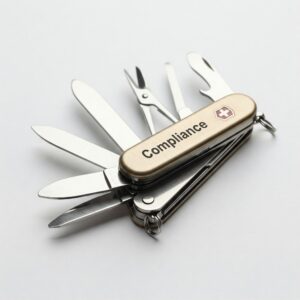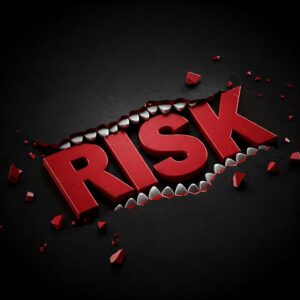In today’s increasingly globalized and interconnected world, financial crimes are more sophisticated than ever. As a result, organizations conducting business internationally must adopt stringent compliance measures, such as Enhanced Due Diligence (EDD), to ensure they are not inadvertently aiding illegal activities like money laundering, terrorism financing, or fraud. However, the risks associated with certain industries vary dramatically by region, as do the regulations that govern due diligence requirements.
The Global Landscape of Enhanced Due Diligence
Enhanced Due Diligence refers to a more in-depth examination of individuals or entities that are considered high-risk, often beyond standard Know Your Customer (KYC) measures. EDD involves scrutinizing complex ownership structures, understanding the source of funds, and flagging unusual activities that might indicate financial crime. What makes EDD complex is that risks are not uniform across the globe—what might be seen as a risky industry in one country could be relatively low risk in another.
Industry Risk: A Matter of Geography and Context
One of the key challenges in EDD is understanding how the risk profile of industries can differ depending on the jurisdiction. For example, in some countries, the furniture industry might be seen as high risk due to its cash-intensive nature and potential for use in money laundering schemes. A prime example is the Middle East and North Africa (MENA) region, where furniture import/export can often overlap with informal economies, heightening the potential for illicit financial activities. In contrast, in the U.S. or parts of Europe, furniture stores are typically considered lower risk due to stricter regulations on cash transactions and a more transparent supply chain.
Similarly, industries like real estate and luxury goods might be viewed as high-risk globally, but in countries like Switzerland or Singapore, additional scrutiny is mandated due to their prominence as financial hubs. Jewelry stores, art dealerships, and high-end real estate are subject to EDD because they are attractive avenues for laundering large sums of money in a single transaction.
In contrast, the agricultural sector may be considered high risk in countries with a history of narcotics production, such as parts of Latin America, where legitimate agricultural enterprises could be used as a front for money laundering from illegal drug trade. Meanwhile, in countries like New Zealand or Denmark, agriculture is not typically associated with financial crime, and the sector may face fewer compliance requirements.
Regulatory Frameworks Driving EDD
Regulatory bodies worldwide have established frameworks to guide organizations in identifying and managing high-risk clients and industries. These frameworks aim to promote transparency, mitigate risk, and protect the global financial system. A few key examples include:
-
The USA PATRIOT Act: In the U.S., the Patriot Act requires financial institutions to adopt rigorous anti-money laundering (AML) programs, including EDD when onboarding high-risk clients. For instance, a bank might be required to investigate the ultimate beneficial owner (UBO) of a corporation in a country flagged by the Financial Action Task Force (FATF) as non-compliant with AML standards.
-
The EU’s Anti-Money Laundering Directives (AMLD): The European Union has established several directives that impose strict EDD requirements. Financial institutions must apply EDD to clients from high-risk third countries, as identified by the European Commission. For example, a real estate deal in Spain involving funds from Russia or China might prompt a more thorough investigation due to perceived risks in those regions.
-
Asia-Pacific Region: Countries like Singapore and Hong Kong have adopted stringent AML and Counter-Terrorist Financing (CTF) regulations in line with FATF guidelines. Financial institutions must not only follow international rules but also consider local nuances, such as the high number of shell companies or complex ownership structures commonly seen in the region.
These regulatory frameworks are designed to force organizations to dig deeper, looking beyond surface-level information to detect red flags that may not be apparent with standard due diligence.
Complexity and Knowledge: The Heart of Enhanced Due Diligence
EDD is not simply a matter of following a checklist—it requires a nuanced understanding of global political and economic contexts, as well as awareness of local customs, regulatory environments, and risk indicators. For instance, conducting EDD on a business in Eastern Europe may require an understanding of how organized crime syndicates operate, while EDD in parts of Africa may demand insight into how government corruption could influence financial flows.
Moreover, the complexity of EDD is magnified when dealing with cross-border transactions or multinational companies. For example, imagine a large company headquartered in the U.K. but with subsidiaries across Southeast Asia. Understanding the web of ownership, transaction flows, and the legal environment in multiple jurisdictions is a daunting but essential task to ensure compliance.
How EDD Helps Meet Regulatory Requirements
Following EDD regulations ensures that organizations are taking the necessary steps to minimize exposure to risk. By deeply analyzing customers’ backgrounds, including their sources of wealth, business activities, and geographic ties, companies protect themselves from unknowingly engaging in transactions with sanctioned entities, politically exposed persons (PEPs), or other high-risk individuals.
In addition to safeguarding against financial crime, adhering to EDD requirements helps organizations avoid hefty fines and legal penalties. Non-compliance can result in significant financial losses, damage to reputation, and loss of business licenses. Financial regulators worldwide, from the U.S. Office of Foreign Assets Control (OFAC) to the European Central Bank (ECB), are increasingly vigilant, issuing record-breaking fines for institutions that fail to meet EDD obligations.
Conclusion: A Global Perspective for a Global Challenge
Enhanced Due Diligence is a critical pillar of global compliance programs, but its successful execution requires more than a one-size-fits-all approach. Industries and regions are not uniform in their risk profiles, and regulations must be tailored to reflect the local realities and threats. Financial institutions, multinational companies, and any organization involved in global business must develop a deep understanding of the world around them—its risks, its regulations, and its opportunities.
By doing so, businesses can effectively navigate the complexities of EDD and contribute to the ongoing battle against financial crime, all while staying on the right side of the law.







